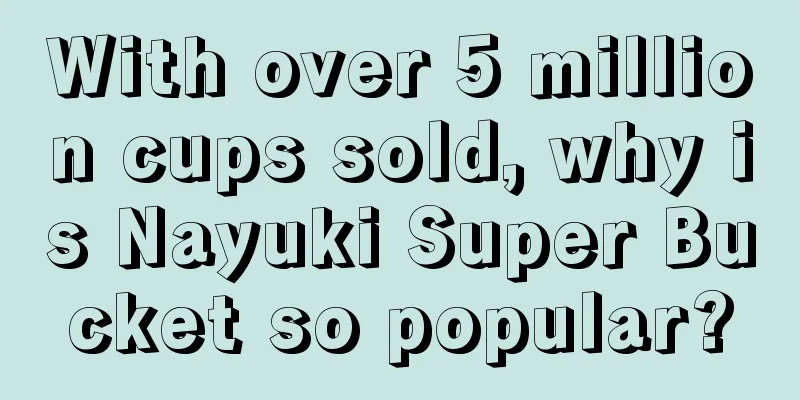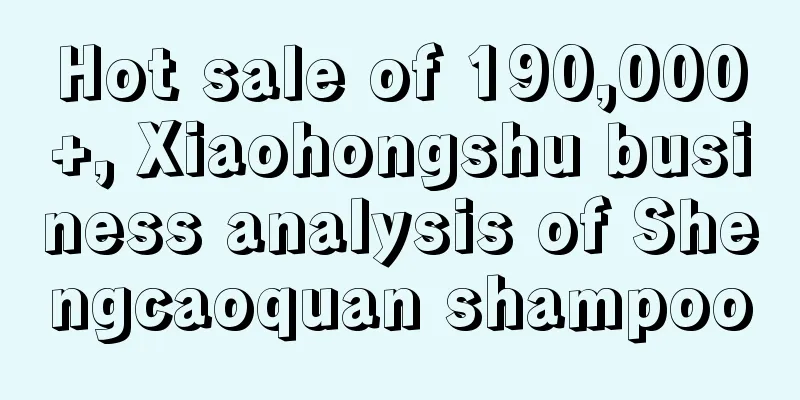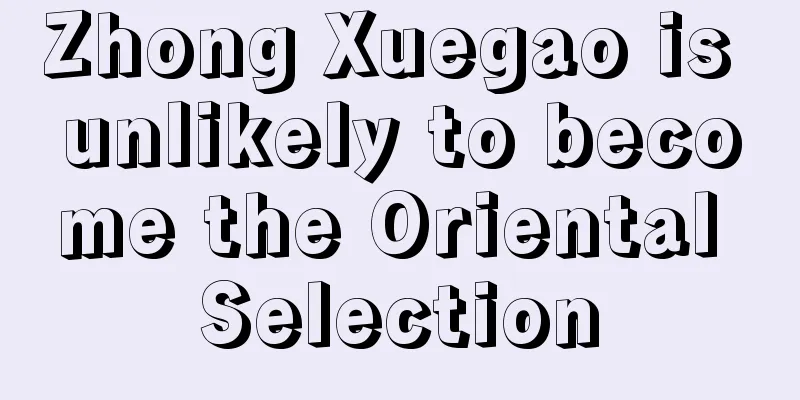In the Olympic marketing war, most brands find it difficult to handle the overwhelming traffic

2024 is truly a "big year for sports". The European Football Cup will come to an end, and the much-anticipated Paris Olympics will be here soon. From a business perspective, sporting events are like a rare "traffic feast", especially national-level sporting competitions such as the Olympics and the World Cup, which are the traffic stages that all businesses are eyeing. World-class sporting events not only have global attention and traffic, but also have rich sports scenes, extremely diverse means of implantation and gameplay. From athlete sponsorship to event broadcasting, there is extremely much room for businesses to play. Moreover, the inherent positive energy of sports also makes businesses yearn for it. Many people believe that the traffic from sports events can only be left to brands that are strongly related to sports, such as sports products, nutritional products, etc. However, businesses that value the traffic from sports events have already made great use of sports marketing. For example, two years ago, the Internet recruitment platform Boss Zhipin became famous by shouting "Looking for a job, go to Boss Zhipin" at the World Cup. Although the online reviews of it are mixed, no one would question the "huge traffic" that the World Cup brought to Boss Zhipin. At this year's European Cup, the audience also witnessed Hisense TV's slogan suddenly evolve from "Second in the World" a few years ago to "First in the World", which made the public curious about what happened behind this and the advertising effect was maximized. With the opening of the Olympics approaching, what are the expectations of major brands? What kind of gameplay have they prepared? 1. Anxiety that the Olympics cannot cureAmong the brands participating in the Olympics, traditional sports brands are the first tier that cannot be ignored. However, the two giants in the sportswear industry, Nike and Adidas, are not having a good time. It is a consensus that Adidas has had poor performance this year and its market position has been challenged one after another. However, to make matters worse, Adidas was also involved in a corruption scandal involving senior executives in Greater China in early July this year. The entire brand was caught in the process of "scraping the bone to cure the poison" and was seriously damaged. But compared to Adidas's continued difficulties over the years, Nike's anxiety is more direct. As the "boss" of the sports goods industry for many years, Nike's 2024 can be described as full of ups and downs. In the financial report just released, Nike handed in an embarrassing answer sheet: in fiscal year 2024, Nike's revenue was only US$51.362 billion, a year-on-year increase of 0.28% from last year's US$51.217 billion. In other words, Nike has not made any "progress" from last summer to this summer. The embarrassing performance directly affected Nike's stock price. On June 28, Nike's stock price plummeted 19.98% overnight, and US$28.4 billion evaporated directly. This was also the biggest stock price crisis Nike has encountered since 2001. There are many different opinions on the reasons why Nike's business is "poor". One theory is that the current CEO John Donahoe has always had an overly "weak" operating strategy. Secondly, Nike's gradual "falling out of favor" with consumers in China and other regions is also one of the reasons. Data shows that in fiscal year 2023, the annual revenue of Chinese brand Anta reached US$62.356 billion, far exceeding Nike's 54.5 billion yuan. In addition, Nike has always been accompanied by various factors such as "outdated products, poor research and development, and declining fashion status." Generally speaking, Nike's "anxiety disorder" requires a drastic measure to resolve. The antidote is undoubtedly the 2024 Paris Olympics. In order to welcome the Paris Olympics, Nike specially held the Nike On Air event in early April, launched its new sports technology product series, and invited 40 contracted athletes to the event. Hong Kong, China fencer Zhang Jialang also got the opportunity to be the center of attention. In this Paris Olympics, whether the athletes can achieve good results wearing Nike is Nike's biggest bet this time. Unlike the anxious Nike, Anta, which has dethroned Nike in China, expects the Olympics to be more about maintaining its territory than expanding its business. In October last year, Anta successfully joined hands with the International Olympic Committee and became the official sportswear supplier of the International Olympic Committee for the next four years. Starting from the Paris Olympics, Anta will provide official clothing, shoes and accessories for Olympic Committee staff in four Olympic Games. While other brands are thinking about which athlete to bet on to bring the greatest profits, Anta is already at the next level. With this guarantee, Anta does not have any particular "performance anxiety" about the Olympics. After all, in addition to providing clothing to the official, the "Champion Dragon Suit" designed by Anta for the Chinese Olympic team has also received attention and praise from the entire network. In addition to shining in traditional fields, Anta also has many "unexpected surprises" on the Olympic track. With the popularity of fitness, Crossfit, powerlifting and other sports in recent years, the Chinese weightlifting team, which Anta once sponsored, also brought "huge traffic" to Anta. Professional weightlifting shoes and other products have become popular online celebrity products along with the popularity of Chinese athletes. Anta’s “battle to defend the city” may be easier than expected. In addition to the fierce competition among major sports brands, the "non-sports" brands in the Olympic arena also have their own different purposes. In this year's list of Olympic sponsors, Alibaba replaced Amazon and became the most famous e-commerce platform. Alibaba's purpose of sponsoring the Olympics is far more than just promoting e-commerce business and selling official merchandise. As the largest cloud service provider for the Olympics, Alibaba will showcase its unique skills such as high-definition cloud live broadcast, VR/AR full-region live broadcast, 360-degree real-time playback, 3D athlete tracking and digital human anchors. Samsung, which has been a partner of the Olympic Games since 1998, will continue to provide technical support to the Olympic Games in the fields of wireless communications and computers, in which it has expertise. But for Samsung, which is planning to move into the chip business, it is crucial to enhance its international visibility and credibility through the Olympics. Brands from all walks of life and with different purposes can find their own place in the Olympics and share the "huge traffic" of the Olympics. The victory or defeat on the field is more direct, and off the field, it is also full of games. 2. Sports events provide sponsors with multiple ways to playHow to deeply participate in sports events is a difficulty for many sponsors. Sports brand sponsorship is simple and crude but effective. The brand logo displayed on the winning athletes is the best advertisement. But in addition to sports events, large-scale sports events themselves are also a huge occasion for content production. Many scenes and details outside the stadium can become a stage for brands to perform. The opening and closing ceremonies are one of the biggest opportunities for display. At the opening ceremony of the 2022 Winter Olympics, Lululemon, a Canadian brand that has always focused on women and yoga, sponsored the Canadian Winter Olympics delegation. Among all the national teams, the Canadian sports team supported by Lululemon stood out. For Chinese sports fans, Anta, Li Ning and other brands are the designated brands of the Chinese Olympic team, and the uniforms they design for the Olympic delegation every time are also a very eye-catching focus. At the Paris Olympics, the most famous uniform sponsor is the French team sponsored by LV. For a luxury brand that is not involved in the sports field, this time joining forces with the French team, in addition to being in line with France's setting as the "fashion capital", also has the intention of actively lowering its profile and gradually "getting down to earth". Some professional and hardcore brands will choose to sponsor an entire team to increase their voice among professional players. For example, in 2021, the Japanese badminton brand Yonex became the sponsor of the Chinese badminton team. From equipment to clothing, everything is provided by Yonex. After the endorsement was announced, Yonex's popularity among Chinese badminton enthusiasts increased significantly. By 2023, Yonex's revenue in the Chinese market reached 2.2 billion yuan. The way technology brands are presented in sports events is even more interesting. In the just-concluded European Cup, Hisense, which broke the circle with its advertising slogan, attracted the attention of fans around the world because it sponsored the key technology - VAR. VAR is a new high-tech referee assistance system introduced in the football game system. Through high-precision camera and slow motion, it can assist referees to accurately identify some controversial goals that are difficult to detect with the naked eye. This technology has been controversial since its launch, but whether it is praised or criticized, it cannot be denied that the VAR system requires extremely high-precision display technology. Hisense has greatly demonstrated its technological strength by sponsoring this technology. By sponsoring the European Cup, Hisense's recognition in the European and American markets has increased year by year. In June of this year, Hisense's market share in Germany rose by 3.4%, with outstanding results. From breaking the circle with the initial slogans on the fences to the current technological output, as Hisense's investment becomes more and more in-depth, its recognition has further expanded. Of course, for most brands, it is a rare opportunity to display directly at sports events, and the cost-effectiveness is not high. Most brands that want to take advantage of the "Olympic hotspot" actually have many ways to go. For example, sponsoring analysis programs for sports events has become a "shortcut" to take advantage of the popularity of the event. During the 2022 Premier League, the liquor brand Jiannanchun sponsored a football talk show "Sword Pointing to the Peak", which featured famous hosts such as Huang Jianxiang, which accurately matched Jiannanchun's users. When it comes to broadcasting rights, major brands are also competing with each other. For example, Kuaishou has been betting on the sports sector for a long time. This year, it became the official broadcasting partner of the Olympics. From the Olympics, NBA to the NFL, sports events have become one of Kuaishou's important ecological components. Douyin was relatively "late to the party" and only started to pay attention to the huge traffic of sports events in 2022. From the 2022 Qatar World Cup to the 2023 Hangzhou Asian Games, it truly entered the field of broadcasting top sports events. But Douyin has a huge traffic base after all. In the 2022 Qatar World Cup alone, Douyin obtained 10.6 billion viewers and 1.3 billion interactions through broadcasting. For brands, wherever there is traffic, there is a stage. The Olympic Games, as the largest "traffic collection", has left room for brands to play, but it has not yet been fully developed. 3. Youth is the essence of sports marketing>At this year's Olympics, the direction of sponsorship and the changes in athletes are surprisingly consistent: younger. At last year's Hangzhou Asian Games, athletes born after 2000 accounted for 70% of the Chinese delegation. Athletes such as Quan Hongchan, Chen Yuxi, Wang Chang, and Liang Weikeng became the "hot cakes" sought after by sponsors. Athletes born after 2000 dare to express themselves and pay attention to aspects such as personal setting, which also gives sponsors a lot of room to play. For example, Quan Hongchan’s statement “My dream is to open a grocery store” has brought her endorsements for beverages and snacks such as Wahaha, Coca-Cola, Yili, and Nongfu Spring. Many people believe that brands will never face great risks when betting on athletes when choosing spokespersons. For example, after the luxury brand Prada officially announced that the Chinese women's football team would become its spokesperson last year, many people expressed their approval of the cooperation. The "awkward" image of luxury goods among ordinary netizens was also restored, and it was considered a successful "positive word-of-mouth marketing." Unlike celebrities in the entertainment industry, athletes generally lead simpler lives and are rarely likely to make "house-collapse" mistakes in their personal ethics. Moreover, as sports stars, they have positive energy attributes and are a good opportunity for brands to build their image. But this does not mean that athletes are "risk-free". Choosing athletes as spokespersons also faces the risk of "failure". Athletic performance is an athlete's greatest achievement. Although in recent years the online reputation of athletes has begun to move away from "performance-only", losing in a key competition is still the biggest risk to an athlete's value. The most typical example is Liu Xiang who withdrew from the competition in 2008. Because of this accident, Liu Xiang personally had to bear a lot of compensation. Moreover, whether the brand and the athlete are "compatible" is also something the brand needs to consider. For example, after Quan Hongchan became popular last year, the women's clothing brand Yuting Clothing immediately chose her as its spokesperson. However, the "Chateau style" and Quan Hongchan's matching were criticized by the entire Internet, and this endorsement probably did not achieve the desired effect. Compared to finding the right athletes, brands now have a new way to appeal to young people: actively using memes. At the beginning of this year, Dalilun, a then unknown internet celebrity, said “Great Wall – Cannon!” which not only brought hundreds of millions of dollars in market value to Great Wall Motors, but also bought himself a new car. Many brands have realized the power of online memes. On a huge content platform like the Olympics, memes are naturally indispensable, but whether they can be grasped depends on the brand's timing and online sense. When the Paris Olympics logo was first launched, many netizens complained that the logo looked like the famous host Lu Yu, and a famous meme was born: "There's no going back." But just last week, Yili suddenly announced that Luyu became the "Olympic Games Ambassador" and also shot a short video that went viral online. It directly used the Internet meme of Luyu's face being similar to the logo, and became the first marketing case that broke the circle at this year's Olympics. Although the weight of Yili's sponsorship is not as high as Mengniu's, but thanks to this famous internet meme, Yili has achieved the effect of 1+1>2. In addition, new Olympic events that are becoming more and more trendy have also become a high ground for brands to seize. The newly established "Breakdancing" event in this year's Olympics has attracted the attention of many brands. The first to take action was Nike. A few years ago, Nike began to recruit breakdance players from all over the world, just like contacting NBA stars, and providing these athletes with equipment and technical support in order to seize the right to speak on this project in advance. At the same time, it also wanted to use breakdance to reshape Nike's voice in the fashion circle. Lululemon, a Canadian brand that operates between trendy brands and sports products, also wants to use the Olympics to increase its serious sports attributes and expand its market share in the men's market and hardcore sports field with the help of yoga and women's brands. Through various successful sports marketing cases, we can find that betting on the sports track may not only be a gamble for the brand, but also a carefully planned chess game. If there is not enough understanding of the project and insufficient foresight of risks, sports marketing will not only fail to achieve the expected results, but may also ruin a good hand. Continuing in the sports arena will test a brand’s professionalism and patience, as well as whether it can truly hit upon the public’s common emotion towards sports: love. Author: Chen Xi Source: WeChat public account "New Entropy" |
Recommend
With an investment of over 10 billion yuan, shelf e-commerce platforms are "fighting for the top of content"
This article deeply analyzes the strategic layout ...
What does Amazon inventory reservation mean and why?
Nowadays, e-commerce merchants generally have some...
Does Amazon Asia have a Chinese site? Which sites are there?
Everyone knows about Amazon. If you want to open a...
How can I place an order on Amazon? How long does it take for a new store to place an order?
As more and more sellers open stores on Amazon, it...
E-commerce turning point! Taobao takes the lead in cracking down on unreasonable "refund only" policies
Recently, Taobao's adjustment to its "ref...
Tame DeepSeek and leverage the 10-fold increase in private domain operation efficiency!
With the widespread application of AI tools such a...
Scene brand: I can’t eat without Haowangshui
How did Hope Water break through in the beverage i...
Zhang Xiaohui's live broadcast sales exceeded 100 million GMV, Xiaohongshu e-commerce continues to grow
Recently, Xiaohongshu blogger Zhang Xiaohui has ac...
Where is the Shopee product optimization entrance? How to optimize?
With the rapid development of e-commerce, more and...
What are the benefits of Amazon’s targeted advertising? How to do it well?
More and more merchants are opening stores on Amaz...
“Effect” is more important than “brand”
We are now in an uncertain era where the industry ...
How can I get a second review for my Shopee store? How long does it take to pass the second review?
If you choose to settle in Shopee, you need to sub...
What should I do if I don’t advertise on Amazon and get no orders? What’s the reason?
There are still many novice merchants who open sto...
What are the pros and cons of tradekey? What is the best thing to sell?
Nowadays, there are many people doing foreign trad...
What is the Amazon Trademark Registration Number? What is going on?
Dear Amazon merchants, if you want to upload brand...

![[Ten Thousand Words of Practical Knowledge] A Complete Analysis of the Four-Step Strategy for Community Operation in Private Domain Traffic Operation](/upload/images/67e6d69476861.webp)







